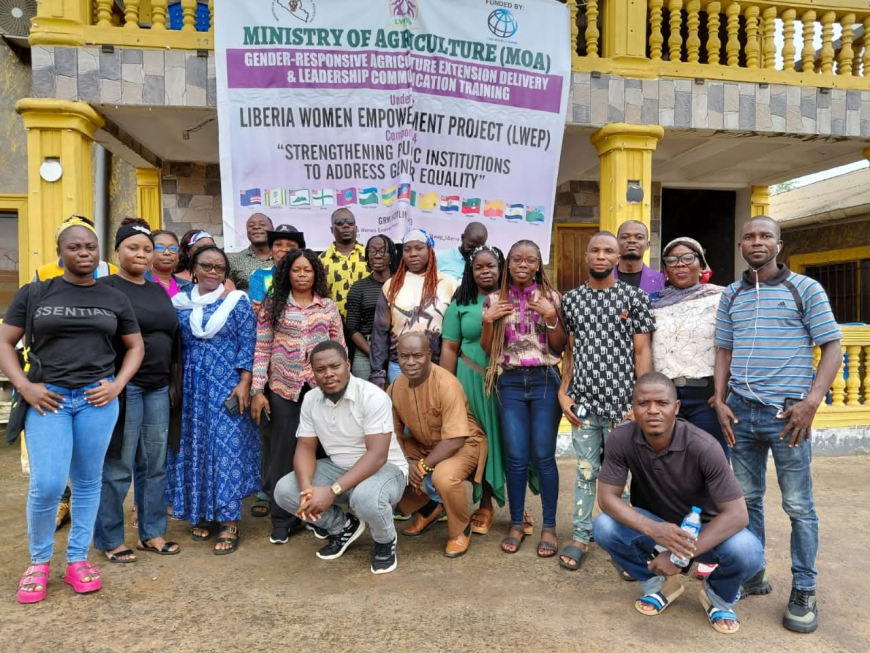The Agriculture Ministry has Introduced a Five-day Training Program Focused on Gender Issues to Improve Service Delivery in Rural Areas

MONROVIA, LIBERIA: In an initiative that folds institutional reform, capacity building, and gender parity into a single operational arc, the Ministry of Agriculture has a five-day training workshop in Buchanan, Grand Bassa County.
The capacity building initiative brought together forty regional and county coordinators as well as extension officers drawn from eight counties under the Liberia Women Empowerment Project, a program steered by the Ministry of Gender, Children and Social Protection and financed by the World Bank.
By: Abraham Sylvester Panto
The training is geared towards strengthening “gender-responsive agricultural extension delivery and leadership communication” across Liberia.
Throughout the opening sessions, facilitators guided participants through layered analyses of “gender dynamics in agriculture,” dissecting cultural and structural barriers that historically have narrowed women’s access to extension services, credit, and decision-making platforms.
The cohort, comprising technical leads from Bomi, Bong, Grand Bassa, Grand Cape Mount, Lofa, Margibi, Montserrado, and Nimba Counties, engaged in scenario-driven modules designed to simulate on-farm negotiations, participatory varietal selections, and conflict-sensitive stakeholder consultations.
Over successive plenary discussions, subject-matter experts mapped Liberia’s persistent cultivation gender gap, where women provide more than half of smallholder labor yet command a fraction of extension contacts and demonstrated how targeted extension can elevate yields, household nutrition, and rural incomes when women farmers receive parity in input access, climate-smart advisories, and market intelligence.
Minister of Agriculture Dr. J. Alexander Nuetah, in a recorded address streamed to the training hall, characterized the program as “irrefutable proof” of the Ministry’s resolve to dismantle systemic biases, pledging rigorous monitoring through quarterly field audits and gender-sensitive scorecards that will track adoption rates, technology diffusion, and leadership advancement for female extension staff.
Meanwhile, facilitators introduced an adaptive management toolkit that enables county coordinators to recalibrate outreach plans in real time, integrating feedback loops, mobile data-collection dashboards, and participatory rural appraisal techniques to ensure that recommended agronomic practices reflect local agro-ecological realities and the lived experiences of women farmers.
A second training phase, scheduled for early July in Gbarnga, Bong County, is set to extend the curriculum to peers from the remaining counties, thereby establishing a national cadre of extension professionals equipped to cascade “gender-responsive advisory services” down to township and village levels without diluting content integrity or accountability metrics.
As the Buchanan cohort advances toward certification, the Ministry reiterated its long-term pledge to cultivate a more inclusive, resilient, and gender-responsive agricultural sector, asserting that sustained technical accompaniment, transparent evaluation, and policy coherence will convert today’s training into tomorrow’s measurable gains for women farmers and, by extension, the national economy.
What's Your Reaction?










































































